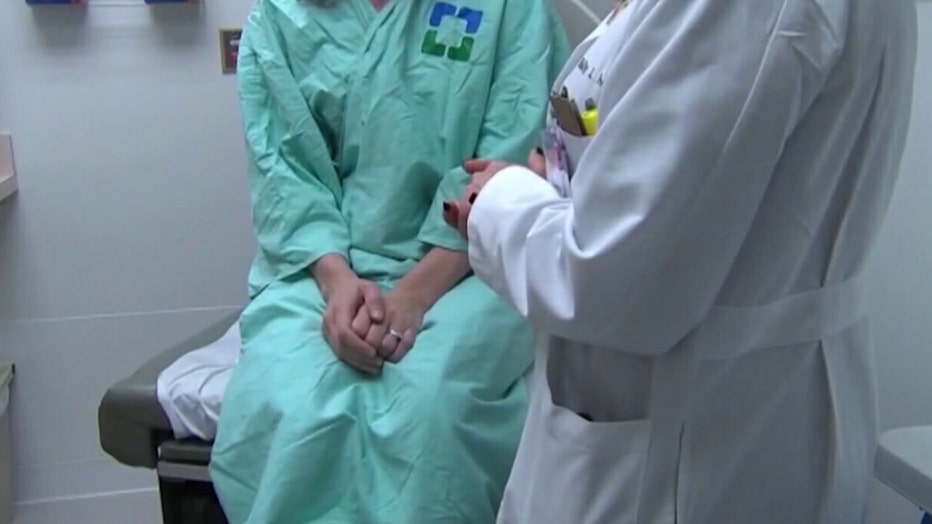Florida Supreme Court weighing state’s new abortion restrictions
TALLAHASSEE, Fla. - The Florida Supreme Court is now deciding whether the state's new abortion restrictions are legal after the justices heard from both sides of the argument Friday.
The justices must answer three questions, the first questions being, "do the specific plaintiffs in the case have legal standing?" If not, then that's the end of it with no ruling on the merits of the case, and the new restrictions hold up.
The second question is "does the state's right to privacy law cover the right to have an abortion with reasonable restrictions?" If yes, then the third question would be over whether the restrictions signed by the governor go too far.
PREVIOUS: Florida Supreme Court will hear challenge to the 15-week ban on abortion
The oral arguments before the justices focused on the privacy amendment.
"The privacy clause refers to a right to be let along and free from government interference into person’s private life," said Whitney White, the plaintiff's attorney. "And private life includes not just private information but private activities and private decisions."
Meanwhile, the state said the privacy amendment does not protect abortion and explained why.

"What is paramount in this case is what the voters understood the privacy clause to mean," said Henry Whitaker, the attorney defending the state of Florida. "The lead sponsor of the privacy amendment in the senate explicitly disavowed on the floor of the senate that it had anything to do with abortion."
RELATED: One year without Roe v. Wade: Here's where abortion laws stand in your state
If the supreme court does decide the 15-week ban on abortions is legal, then Florida's six-week ban would go into effect. The plaintiffs will have the opportunity to challenge that too, but they may need another strategy.
Abortion rights advocates argue the issue should be up to voters, so they’ve been collecting signatures for a ballot initiative to get an amendment to the state’s constitution.
"We are pushing forward a ballot initiative that will put the power and the voice back in the hands of Floridians in regards to this really important issue, because abortion, healthcare, access, it's not a partisan issue, it's not a political issue. It's a human rights issue," said Kaitlynn Danehy-Samitz, the founder of Women’s Voices of Southwest Florida.
Kaitlynn Danehy-Samitz is leading the effort, and she said they’ve collected about 650,000 signatures on a petition to put abortion on the ballot. Floridians Protecting Freedom is the campaign behind the ballot initiative.
They say they’ve met the threshold for the supreme court to review it. Their goal is to get the green light from the justices, and then they can keep collecting signatures by February to get it on the 2024 ballot.

READ: Governor Ron DeSantis signs 6-week abortion bill
"It would be to limit government interference with abortion and health care up until viability. The point of viability is determined by the doctor and the patient, well, the doctor of the patient," said Danehy-Samitz.
The Centers for Disease Control and Prevention classifies abortions as surgical or medication abortions. According to the Guttmacher Institute and the CDC, over half of legal abortions, about 53% since 2020, involved pills.
"Things are changing in the states, and people will have to make a decision about whether they want to go up the east coast, to North Carolina, Maryland, New York," said Stephanie Fraim, the president and CEO of Planned Parenthood of Southwest and Central Florida.
Planned Parenthood, the American Civil Liberties Union and other plaintiffs in the challenge to Florida’s abortion ban shared thoughts after Friday’s supreme court oral arguments.
"The state’s argument today was asking the court to read the privacy clause extremely, extremely narrowly to limit it only to so-called informational privacy rights," said Whitney White, staff attorney for the ACLU and an attorney for the plaintiff. "We certainly agree that those rights are included and protected by the privacy clause, and that is also part of the established law in Florida. But there is no basis to constrain the clause that narrowly."
While they wait for a decision, abortion rights leaders are busy spreading the word.
"The language that we have picked is foolproof, and we are just very motivated right now to keep pushing forward and to keep making it work for us as we can," said Danehy-Samitz.


